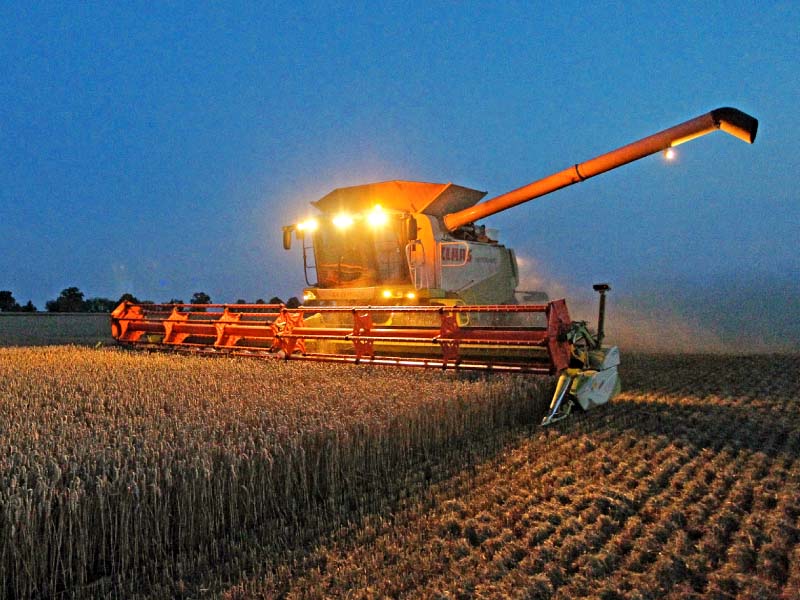The interplay between climate conditions and crop yields has shaped the nation's agricultural landscape, influencing economic stability, food security, and even political events. In this exploration, we delve into the annals of Polish history to uncover the impact of weather https://icmmeteo.pl/ on crops and the resilience displayed by the agrarian communities.
The Little Ice Age: Chilling Effects on Agriculture
The Harsh Winter of 1708-1709
The Little Ice Age, a period from the 14th to the mid-19th century, brought about colder temperatures and unpredictable weather patterns. The winter of 1708-1709 stands out as particularly harsh, causing widespread crop failures in Poland. Sub-zero temperatures and heavy snowfall persisted for an extended period, leading to a shortage of fodder for livestock and a decline in grain production.
Economic Fallout and Famine
The consequences were severe. Crop failures translated into economic hardship as food prices soared. The rural population, reliant on agriculture for sustenance, faced famine and struggled to cope with the scarcity of resources. This period of weather-induced crop failures had a lasting impact on the socio-economic fabric of Polish society.
The Great Frost of 1929: A Modern Era Challenge
Devastating Effects on Agriculture
Moving into the 20th century, Poland faced another weather-related challenge – the Great Frost of 1929. This unexpected and severe cold snap occurred in late spring, damaging crops at a crucial stage of their development. The frost hit fruit orchards, cereal fields, and vegetable crops, resulting in significant losses for farmers across the country.
Economic Repercussions and Agricultural Policies
The economic repercussions were felt nationwide. Farmers, grappling with the aftermath of the Great Frost, struggled to recover financially. The Polish government responded by implementing agricultural policies aimed at supporting affected farmers, showcasing the need for adaptive measures to counter the impact of unpredictable weather on agriculture.
Modern Challenges: Climate Change and Agriculture
Changing Weather Patterns
In recent decades, Poland has witnessed shifts in weather patterns attributed to climate change. Erratic rainfall, prolonged droughts, and extreme weather events pose new challenges to the agricultural sector. These changes disrupt traditional farming practices and necessitate innovative solutions to ensure a resilient food supply chain.
Adoption of Sustainable Practices
In response to the evolving climate challenges, Polish farmers are increasingly adopting sustainable agricultural practices. Crop diversification, precision farming, and the use of climate-resilient crop varieties are becoming integral strategies to mitigate the impact of changing weather patterns on crop yields.
Coping Strategies and Agricultural Innovations
Crop Rotation and Diversification
Historically and in the contemporary context, Polish farmers have employed crop rotation and diversification as effective strategies to cope with weather-induced crop failures. By alternating the types of crops planted in a particular field, farmers can enhance soil fertility, reduce pest pressure, and mitigate the risk of complete crop loss due to adverse weather conditions.
Technological Innovations
Advancements in technology have also played a crucial role in enhancing agricultural resilience. Weather forecasting tools, satellite imagery, and data-driven insights empower farmers to make informed decisions about planting times, irrigation, and harvesting. This technology-driven approach helps farmers anticipate and navigate the challenges posed by unpredictable weather.
Government Initiatives: Building Resilience in Agriculture
Financial Support and Insurance Programs
Recognizing the vulnerability of agriculture to weather-induced shocks, the Polish government has implemented financial support and insurance programs for farmers. These initiatives provide a safety net, helping farmers recover from crop failures and encouraging them to adopt risk-mitigation strategies.
Research and Development in Agriculture
Investments in agricultural research and development contribute to the creation of climate-resilient crop varieties and innovative farming practices. The collaboration between government agencies, research institutions, and the farming community fosters an environment of adaptability and innovation in the face of changing weather patterns.
Conclusion: Navigating the Weather's Unpredictable Terrain
In the tapestry of Polish history, weather-induced crop failures have been woven into the narrative of resilience, adaptation, and innovation. From the challenges posed by the Little Ice Age to the modern era's climate change impacts, Polish agriculture has weathered storms – both literal and metaphorical.
As the nation continues to navigate the unpredictable terrain of weather patterns, the lessons from history underscore the importance of proactive measures. The combination of traditional wisdom, technological advancements, and government initiatives forms a robust foundation for building resilience in Polish agriculture. In the face of climate uncertainties, the story of Polish agriculture becomes not just a historical account but a testament to the indomitable spirit of those who cultivate the land.










